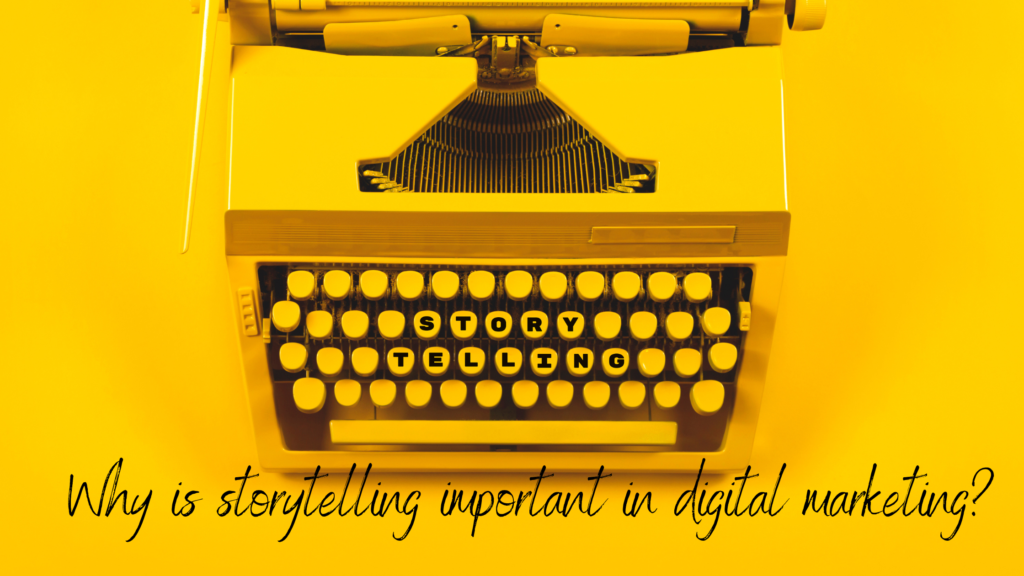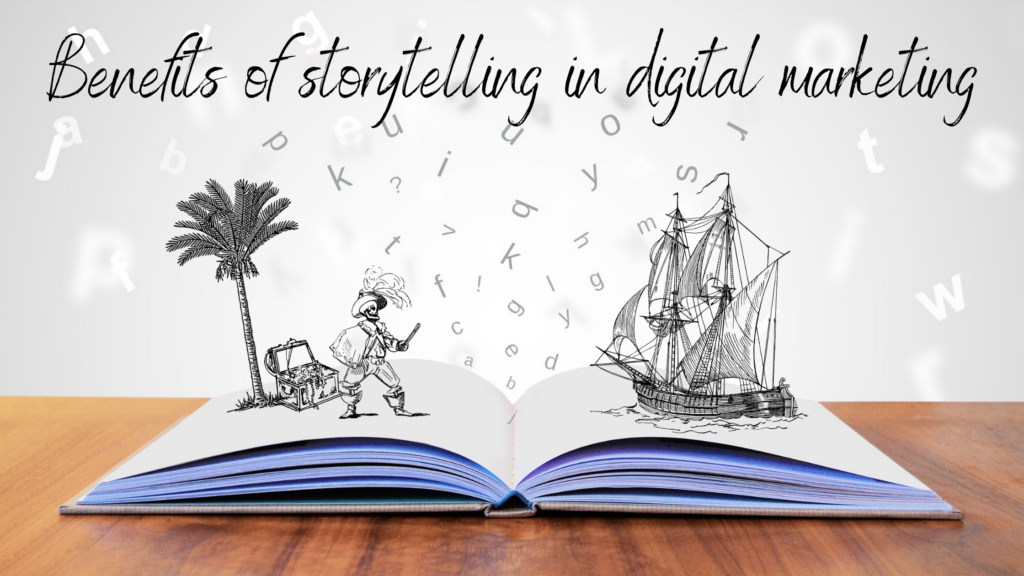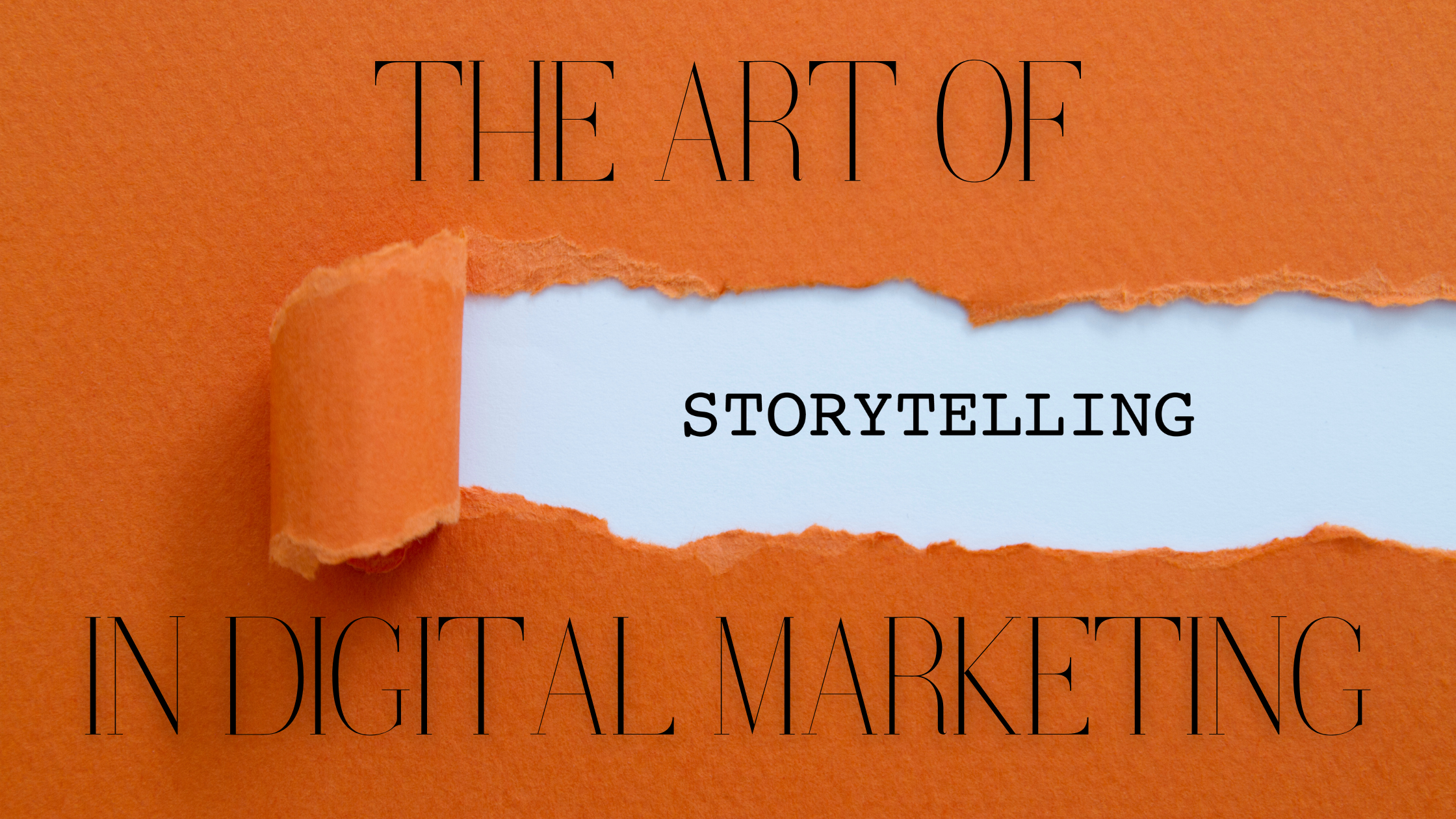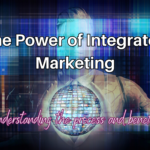In today’s digital age, storytelling has become an integral part of marketing. Gone are the days when businesses only used advertising to reach their target audience. Now, people are bombarded with ads every day and it has become increasingly difficult to cut through the noise. Storytelling, on the other hand, can be a powerful tool for capturing people’s attention and engaging them emotionally. In this article, we will explore the art of storytelling in digital marketing and the benefits it can bring to businesses.
What is storytelling in digital marketing?
Storytelling in digital marketing is the art of conveying a brand’s message through a narrative that resonates with the audience. It involves using elements of storytelling such as character, conflict, resolution, and emotion to create a connection with the audience. By telling a story that is relevant and relatable, businesses can create a memorable and impactful brand image that sets them apart from the competition.
Why is storytelling important in digital marketing?

In the world of digital marketing, where there is an abundance of content vying for people’s attention, it can be challenging for brands to stand out. One way to cut through the noise is through storytelling. When a brand tells a story, it becomes more than just a faceless entity trying to sell products or services. It becomes a relatable character that people can connect with on a personal level.
Humans are hardwired to respond to stories. Since ancient times, people have used stories to share their experiences, pass on knowledge, and entertain each other. Stories can evoke emotions, capture people’s imaginations, and make complex ideas more accessible. In the context of digital marketing, a good story can help a brand convey its message more effectively than a dry list of features or benefits.
Through storytelling, a brand can demonstrate its values, showcase its unique personality, and differentiate itself from competitors. For example, a brand might tell a story about how it was founded, the challenges it faced, and how it overcame them. This can help create a sense of authenticity and trust with the audience, as people are more likely to do business with a brand they perceive as genuine and honest.
Moreover, storytelling can create an emotional connection with the audience. By tapping into people’s emotions, a brand can create a lasting impression that goes beyond the product or service being sold. For instance, a charity organization might tell a story about how it helped a person in need, which can evoke feelings of empathy and generosity in the audience. This emotional connection can lead to increased loyalty and brand advocacy, as people are more likely to support a brand they feel a personal connection to.
Storytelling is a powerful tool in digital marketing. By humanizing the brand, making it more relatable, and creating an emotional connection with the audience, storytelling can help a brand stand out, capture people’s attention, and build lasting relationships with its customers.
Benefits of storytelling in digital marketing

Increased brand awareness
When it comes to making a name for yourself in the cutthroat world of business, there’s one thing you absolutely can’t afford to overlook: brand awareness. Let’s face it – with so many companies vying for attention, it’s all too easy to get lost in the shuffle. But there’s a simple yet powerful tool that savvy marketers have been using for ages to rise above the noise: storytelling.
That’s right, my friends. By weaving a compelling narrative that hits home with your target audience, you can make your brand stand out like a sore thumb (in a good way, of course). Think about it – when you tell a story that resonates with people on a personal level, you create an emotional connection that goes beyond just selling a product or service. You’re tapping into something deeper – something that speaks to their values, their hopes, and their dreams.
And the best part? When you do it right, people will remember your brand long after the story is over. They’ll associate you with something meaningful, something that speaks to who they are and what they care about. And that, my friends, is how you build brand awareness that sticks.
So, if you’re serious about standing out in a crowded market, take a cue from the great storytellers of our time. Craft a narrative that resonates with your audience, and watches your brand awareness soar. Trust me – it’s a game-changer.
Improved engagement
If you’re tired of lacklustre engagement with your brand, then it’s time to tap into the power of storytelling. Let me tell you something when you weave a compelling tale, you create an emotional bond with your audience that just can’t be beaten.
Think about it, would you rather read a dry list of product features or a story that takes you on a journey and makes you feel something? I know which one I’d choose. And your audience is no different. They want to feel something, to connect with your brand on a deeper level.
By telling stories, you can do just that. You can showcase your brand’s personality, its values, and its unique perspective. You can capture the imagination of your audience and make them care about what you have to say. And when people care, they engage. They like, comment, and they share. They become a part of your brand’s story.
But here’s the thing, not just any story will do. You need a story that resonates with your audience, and that speaks to their wants and needs. A story that makes them feel seen and understood. And when you get it right, the results can be mind-blowing. You’ll see increased engagement, more interactions, and ultimately, more sales.
So don’t be afraid to get creative. Don’t be afraid to be vulnerable. And most importantly, don’t be afraid to tell a damn good story. Your audience is waiting, and trust me, they’re hungry for it.
Increased brand loyalty
In today’s highly competitive business landscape, it’s not enough for a brand to simply exist. A brand needs to establish a loyal following of customers who not only purchase its products or services but also advocate for the brand. This is where storytelling comes in.
When a brand can craft a memorable and impactful story, it can tap into people’s emotions and create a connection with its audience. This connection leads to increased brand loyalty, as customers feel a personal investment in the brand’s success.
Think about it. When you hear a story that resonates with you, you’re more likely to remember it and share it with others. This is the same with brands. When a brand tells a compelling story that touches on people’s values, interests, or emotions, it creates a lasting impression in their minds.
Moreover, this emotional connection leads to increased brand loyalty. Customers who feel connected to a brand are more likely to remain loyal and advocate for the brand. They’ll tell their friends and family about the brand, share their positive experiences on social media, and continue to purchase from the brand in the future.
So, if you want to establish a loyal following for your brand, it’s crucial to incorporate storytelling into your marketing strategy. Craft a story that aligns with your brand’s values, mission, and personality. Make it memorable, impactful, and relatable to your audience. By doing so, you’ll create a connection with your customers that goes beyond the transactional nature of business. You’ll establish a relationship built on trust, authenticity, and emotional resonance, which will ultimately lead to increased brand loyalty and advocacy.
Improved conversion rates
If you want to take your conversion rates and sales to the next level, you need to start harnessing the power of storytelling. That’s right, you heard me. Storytelling isn’t just for bedtime tales, it’s a proven tactic for increasing your bottom line.
Here’s the deal: when you tell a story, you’re not just spewing facts and figures at your audience. You’re engaging with them on a deeper level. You’re tapping into their emotions and creating a connection that goes beyond the product or service you’re selling. And that’s how you turn browsers into buyers.
Think about it. When you read a great story, it stays with you long after you’ve finished reading it. The same goes for your brand’s story. If you can tell a compelling story that resonates with your audience, you’ll stick in their minds. And when it comes time to make a purchasing decision, they’ll remember your brand and be more likely to choose you over the competition.
But it’s not just about being memorable. Storytelling can also create a sense of trust and authenticity. When you share your brand’s story, you’re showing your audience that you’re not just another faceless corporation. You’re a real company with a real history, and that makes you more relatable and trustworthy in their eyes.
So, if you want to boost your conversion rates and drive more sales, start incorporating storytelling into your marketing strategy. Whether it’s through your website, social media, or advertising campaigns, use the power of storytelling to create an emotional connection with your audience. Trust me, your bottom line will thank you.
FAQs about storytelling in digital marketing
The Art of Storytelling in Digital Marketing
- What kind of stories should businesses tell in digital marketing?
Businesses should tell stories that are relevant and relatable to their audience. These stories can be about the brand’s history, its mission, or its customers.
- How can businesses measure the effectiveness of storytelling in digital marketing?
Businesses can measure the effectiveness of storytelling in digital marketing by tracking metrics such as engagement, brand awareness, and conversion rates.
- How can businesses get started with storytelling in digital marketing?
Businesses can get started with storytelling in digital marketing by identifying their audience, creating a brand story, and incorporating storytelling into their marketing campaigns.
Conclusion
Storytelling is an essential part of digital marketing. By telling a story that resonates with the audience, businesses can create a memorable and impactful brand image that sets them apart from the competition. Storytelling can also create an emotional connection with the audience, leading to increased loyalty and brand advocacy. As such, businesses should incorporate storytelling into their digital marketing strategies to improve engagement, conversion rates, and overall brand success.









0 Comments